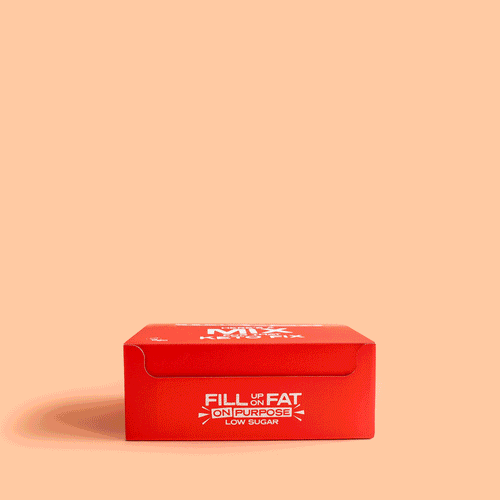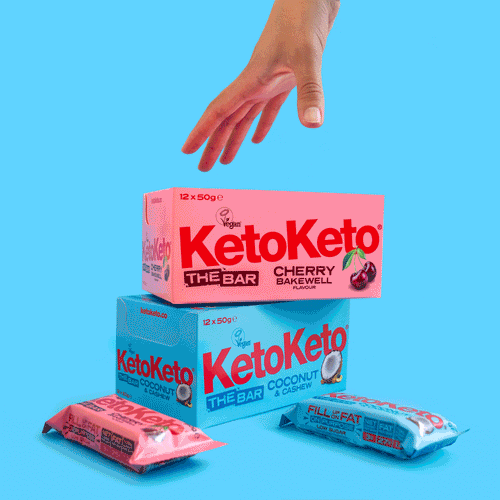As you consider transitioning onto a Ketogenic diet, or make plans to definitely go Keto, you may be concerned about the side effects that many experience when they change their eating habits in this way.
One of the most common side effects of moving to a Keto diet is headaches. So much so, Keto headaches have become a name unto themselves and widely recognised as a symptom of eating the Keto diet.
But Keto headaches do not have to be expected nor accepted as part of a Keto lifestyle. With the right information, some preparation and a little effort, you can reduce and even eliminate headaches from your Keto transition.
What Is The Keto Headache?
The Keto headache is just like any other headache - uncomfortable, painful and very disruptive, except that it is caused specifically by the changes to your diet:
Low Carb - Low Blood Sugar
The shift to a Keto diet drastically changes the amount of macros you’ll be eating. You’ll get around 80% of your calories from fat, 15-20% from protein and less than 5% from carbs. This is a significant change from the standard diet which tends to be high in carbs and low in fat.
As your body transitions to the Keto diet, the reduced amount of carbs will move your body into Ketosis, and your body will begin to rely on ketones instead of glucose for energy. When this happens, your blood sugar levels can significantly drop and you’re more likely to experience the symptoms associated with low blood sugar, such as headaches, dizziness and fatigue.
Ketosis - Loss Of Fluids
The whole point of the Keto diet is to keep your body in a state of ketosis, but as your body moves into this new state you can experience side effects such as frequent urination and a reduction in electrolytes which are necessary for hydration. These two factors together can lead to dehydration and consequently, headaches.
As your body uses up its store of carbohydrates, known as glycogen, it releases water molecules since glycogen is bound to water molecules in your body. This excess water is released from your body through more frequent urination.
Your body will also produce less insulin as less is required to process and absorb carbohydrates. The drop in insulin levels will have a knock-on effect to electrolytes in your body, which are key to maintaining hydration.
The combination of losing water through excess urination and reduced levels of electrolytes, means you’re likely to lose essential fluids and minerals and be susceptible to dehydration. Dehydration of course can lead to headaches and brain fog, as well as a lack of overall energy.
Fortunately, the causes of Keto headache have been identified, and that means we can take steps to prevent and improve them too.
5 Effective Ways To Prevent Keto Headache
Plan Nutritious Meals

One of the most effective ways you can reduce Keto headaches is to plan and prepare nutrient dense meals and snacks. Your body will need as much help as possible to conserve and create energy as you move into ketosis, so make sure you have plenty of high-fat meals and snacks available.
You will no longer be relying on carbs to fuel your activities and health, so you have to replace it with good quality fats. If you don’t eat enough fat, you will suffer more with side effects such as Keto headaches as you make the switch.
Plan ahead by sourcing meal and snack ideas and create a meal plan and shopping list ahead of time. You can also bulk-batch meals and snacks and store them away in your fridge or freezer for the week ahead, so you have everything you need to stay fueled and feeling well, no matter how hectic your schedule becomes.
Drink, Drink and Drink Some More!
It’s vital that you stay hydrated so drink plenty of water! The average person ought to drink at least 8 cups of water per day on a standard diet, so you’ll need to sip on even more as you begin your Keto diet to support your body through the transition.
You can buy some great products such as water bottles with printed measurements so you can easily keep track of how much you’re drinking. There are also a variety of apps you can use to remind you when and how much to drink, to keep you hydrated throughout your day.
If you find water difficult to stomach, you can also invest in drink bottles that come with infuser attachments - so you can add some flavour and extra vitamins. For example you could try adding some mint and lemon or strawberry and cucumber combinations.
Use Supplements

Your body will need extra support while you move into ketosis, so it’s a brilliant idea to use supplements that restore and boost levels of minerals and electrolytes.
Consider taking mineral supplements such as sodium, potassium and magnesium. Of course eat plenty of foods that are naturally high in these minerals too such as avocados, cashew nuts and dark leafy greens.
You can also take electrolyte supplements which can easily be added to your smoothies or water bottles, and sipped on throughout the day to keep your body balanced and feeling well. Take a look at The 6 Best Vitamins and Supplements on Keto for more info on the best supplements to support your body through ketosis.
Keep To Moderate Exercise
You may be used to intense workouts, but it’s not a good idea to push yourself too hard while you switch to Keto. Your body will become increasingly depleted of glycogen stores when you begin Keto, and this can mean your body will struggle to have enough energy to power you through extreme workouts.
You don’t have to give up exercise altogether, instead keep to moderate workouts that gently raise your heartrate and get your blood surging, without a crash in blood sugars and ill effects like headaches.
This is a temporary measure while your body adapts to Keto. In fact, many who transition to Keto find they have even more energy and stamina for workouts once their bodies have acclimated to ketones for fuel, instead of glucose.

Get the right balance of Fats to keep headaches at bay.
Save more when you combo up with all your favourite flavours of KetoKeto. Grab some Lemon & Poppy Seed, Cherry Bakewell or three other tasty flavours.
Long-Term Gains
Keto headaches are known to be a common side-effect of transitioning to the Ketogenic diet. The changes that occur in your body as it adapts to Keto can bring about dehydration and a drop in blood sugars which result in headaches.
However, Keto headaches are not a given and there are many things you can do to prevent and ease them. Plan ahead, support your body as much as possible with the right foods and supplements, stay hydrated and go easy on the workouts.
Once your body has grown accustomed to this new way of functioning, you’ll likely find you have more energy and feel better than ever before.






